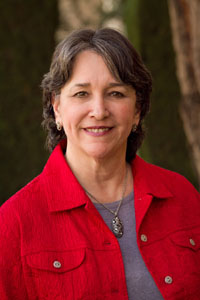
In this week’s Torah portion, Ha’azinu, Moses faces the reality that he will not be joining the Israelites as they enter the Promised Land. As he faces his death he tells the people “Don’t blame God when things go wrong. God is not here to serve us. God created us to be a blessing to the world.”
Moses knew that the Israelites would too easily blame God for their trials and tribulations. God had been telling Moses what to say to the people so, minus Moses, who else would they think to blame? The God that Moses told them was their guiding force. But Moses, knowing that he would not be alive to remind the people of God’s goodness, reminded them of their responsibility to live as good people and take care of the world which God had given to them.
Moses wasn’t saying anything unusual. We all tend to want to blame someone or something else when life gets tough. And yes, often we want to cry out to God, “Why me?” Before we are willing to look inward, and in the absence of obvious reasons for our problems, we look to God. We want God to feel our anger. We want God to give us some sense of why this happened to us. And if we do not believe in God, we wind up blaming those who do. In the end, we try to escape from taking personal responsibility.
I gave my two daughters life. My body created them and nurtured them until the time was right for them to emerge and become their own people. Once they began breathing on their own I could not live their lives for them. I could guide them and teach them and support them through the realities of their lives. But I could not have lived their lives for them (even though I may have tried at times!) As human beings they had to take responsibility for their own lives.
So, too, is the relationship we have with God. God created us but also instilled in us the responsibility to take care of ourselves and the world in which we live.
We all experience times in life when it would be so easy to blame someone else. I am six months beyond my year of treatment for breast cancer. On a daily basis I felt anger that I had to endure a very traumatic treatment protocol. Yet, in my head, I thought that I was supposed to want to blame someone – probably God. I thought that I wasn’t supposed to get this disease. Why me? What did I do to deserve this? And yet, I never really believed that. Why me? Because one out of every eight women gets breast cancer. So, I was one of the “lucky” ones! However, as I began to round the corner toward the end of my treatment and the reality that I was going to be on the mend, I realized that it did me no good to lay blame on anyone for my cancer. I was angry – and dealing with that anger helped me in my healing. What I really needed to think about was “What would I do with the lessons I learned during the treatment?” It’s what I would do with my anger that made a difference. I realized that I had to take responsibility for the problem called cancer. Viktor Frankl, a survivor of Auschwitz, said that we are not defined by what happens to us but rather by how we respond to what happens to us. I realized that there was absolutely no way to find out why I got cancer and it was meaningless to blame anyone. However, what brought meaning for me was to think about what I might do with the experience I was having.
But let’s be honest. It’s so much easier to place the blame somewhere else. It’s hard to be self-reflective and own up to our shortcomings, or to take responsibility to improve our lives when it is in response to something we never asked for! Taking responsibility does not mean you have to go it alone. Reaching out for support and guidance when you are trying to take personal responsibility is a sign of strength, not weakness. We are made “B’Tzelem Elohim”, in God’s image. And I for one never thought that God expects us to go it alone, to test our strength. I believe that God has gifted us with being created in communities of people - friends, family members, colleagues – who are here to help us do the work of taking responsibility for improving our world and ourselves.
Dr. Madelyn Katz is the Associate Dean at the Hebrew Union College Jack H. Skirball Campus in Los Angeles. She also serves as a North American board member of Women of Reform Judaism. Madelyn and her husband, Ricky, live in Los Angeles and have two adult daughters, a wonderful son-in-law, and two delicious grandchildren.
Related Posts

Parashat Yom Rishon shel Rosh HaShanah

Cultivating a Culture of Accountability and Belonging


